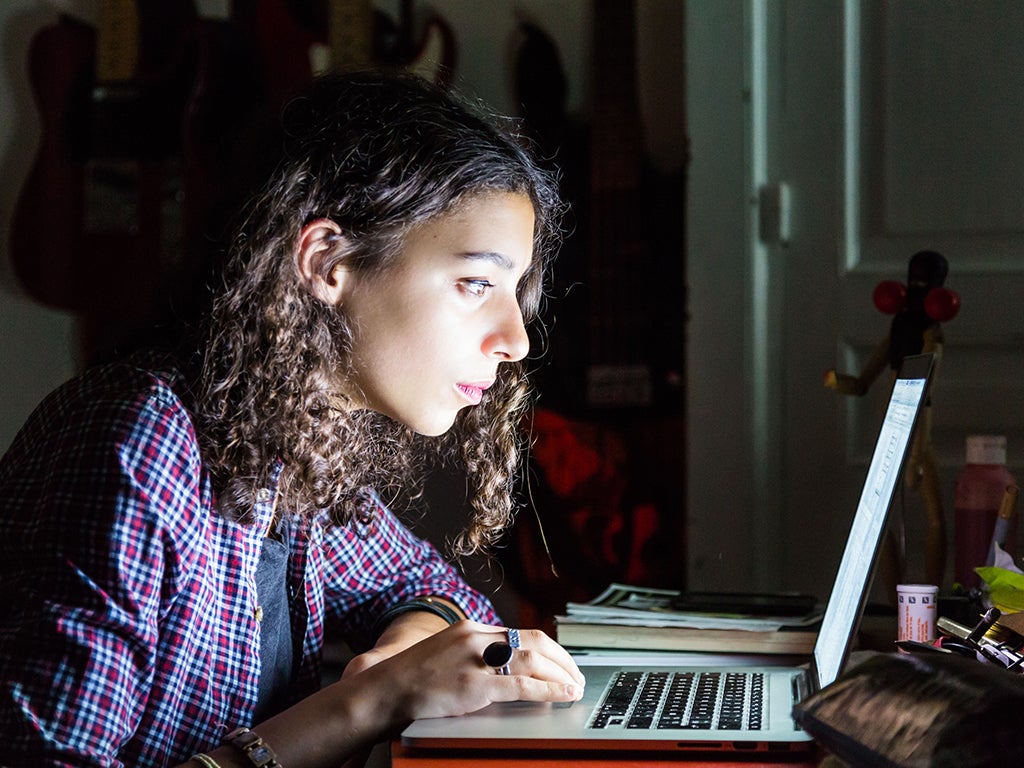Mental Health Awareness Week: Does social media feed anxiety?
The problem with a photo or tweet is lack of context, and without admitting that you stalked someone online, you will not receive this precious context - so it can be bad for stress and anxiety

It was around 2am and I still couldn’t sleep. Feeling alone I decided to send a tweet, “Insomnia - friend of anxiety. Is anybody out there still awake?” Within minutes I was flooded with words of support from people all over the world. I couldn’t believe it! The power of the internet is definite, one that provides a connection to strangers that the previous generations didn’t have. The truth is, we’re never really alone, which is a comforting thought.
In general, I have a love/hate relationship with the social media. It’s both liberating and oppressive. I originally began blogging in 2013. I wanted to share my experiences with anxiety and panic attacks, and prevent others from feeling as lost as I had.
Mental health is a legitimate concern and there is nothing to be ashamed of. Through blogging I also encountered some excellent websites, resources and communities, including Anxiety Coach and Walking on Custard.
Nicky Lidbetter, the CEO of Anxiety UK believes that exchanging stories and advice is a powerful tool:
“Social media has made massive inroads in helping those who have felt isolated and on the margins of society feel connected. Indeed before Twitter and Facebook people living with anxiety would’ve had to join a formal support group or organisation. The avenues to connect with others and share information were much more limited.”
But while my experiences have been largely positive, social media can also have negative impacts ton those who suffer with anxiety. Facebook, Twitter, Instagram, LinkedIn, Pinterest – there are a whole variety to choose from. We can and do share everything.
As of 2011, if you don’t have a Facebook account then technically you didn't exist. Finding out about somebody’s background has never been easier. But is such easy access to so much information a good thing? Did you really want to know that your ex isn’t in fact pining over you as you’d originally hoped, but married to a supermodel and living in Dubai? Or that some colleagues went to the local pub without you?
The problem with a photo or tweet is lack of context, and without admitting that you stalked a person (we all do it), then you will not receive this precious context. So it’s therefore natural to presume that your colleagues hate you and your ex has the perfect life. Talk about anxiety provoking! For a person who is prone to over-thinking, it’s a playground of stress.
The digital revolution has changed the world forever. Previously we’d go home, watch TV and eat our dinner in peace. Now we’re constantly updating our statuses, adding new photos and ‘checking in’. The pressure to be interesting has never been more paramount. Twitter is a battlefield of competition; how many followers do you have? How many favourites or retweets?
Cyberbullying is on the rise with teenagers unable to escape from their tormentors. The age of ‘selfies’ and perfectly edited Instagram photographs is enough to make even the most confident person feel insecure. “The reality is that most of us cannot live up to this perfect image, because not even the top models can,” says Lidbetter.
As somebody who suffers with anxiety and taking all of the above into consideration, would I ever pack up and leave the world of social media? No. We adapt to change and ultimately I have gained more from my experiences and shared sense of community.
Although, I have established some strict rules that I would urge others to follow:
- Don’t check Facebook on a Friday or Saturday night. Why do it to yourself? I often leave my phone in another room.
- When you lose a Twitter follower try not to take it to heart. I’m afraid they ‘just weren’t that into you’ – so move on.
- Make sure that your Facebook is set to ‘private’ (no brainer). We wouldn’t want your new employer to see that horrendous photo with the pole and greased up men.
- Don't click on your ex's profile. Especially when drunk or alone.
- Beware - if you click on somebody’s LinkedIn profile it automatically informs them. So don’t spy on them unless you’re prepared to be exposed!
- Don’t ever take naked photos of yourself… PERIOD.
For more information visit:
Join our commenting forum
Join thought-provoking conversations, follow other Independent readers and see their replies
Comments
Bookmark popover
Removed from bookmarks